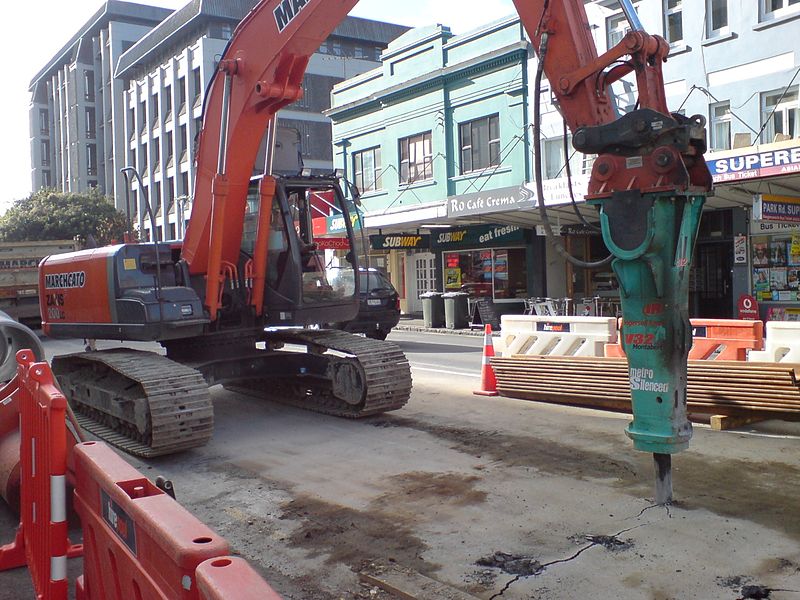What is Noise Pollution? | How to Protect Your Family and Yourself

It’s 7:00 on a Saturday morning, and you’ve been awakened by the sound of leaf blower blasting next door. Aside from the annoyance of being awakened early on one of the few days you have to sleep in, your ears begin to ring and a dull headache sets in from the pain and frustration of the noise. Unfortunately, you’ve just experienced the physical and psychological setbacks noise pollution can have on all of us.
No matter what we do, our hearing is always “on”. We can’t “turn off” our hearing the same way we “turn off” our sight by closing our eyes or “turn off” our smell by pinching our nose. If a sound is within our range of hearing, we have no choice but to hear it. This is one of the reasons that noise pollution poses such a problem for individuals and families who live near sources of loud noise.
What is Noise Pollution, Anyway?
According to the Environmental Protection Agency (EPA), noise pollution is an “unwanted or disturbing sound.” The EPA also explains that “sound becomes unwanted when it either interferes with normal activities such as sleeping, conversation, or disrupts or diminishes one’s quality of life”.
Just as a loud leaf blower operating next door can lead to noise pollution in your home, heavy street traffic, overhead aircrafts, and nearby construction equipment can all lead to unwanted or disturbing sounds inside your living space. It may seem like a minor nuisance, but loud noises can have serious health consequences for you and your family.
What are the Dangers of Noise Pollution?
Noise pollution can cause both auditory and non-auditory health effects for people. Most people are aware of the auditory effects of loud noise, which includes hearing loss. Hearing loss from loud noises usually happens gradually over a long period of time, so it’s not noticeable until several days, weeks, months, or years after repeated exposure to loud noises. People who expose themselves to loud noises repeatedly without using adequate hearing protection, such as landscapers, woodworkers, or frequent concert attendees, are more likely to suffer from hearing loss — especially later in life.
It might surprise you to find out which noises are considered dangerous to hearing. OSHA requires hearing protection for workers at a level of 90 decibels of sound, and a chainsaw is about 118 decibels. From this perspective, it’s easy to understand how household noises can reach dangerous level: Lawn mowers, motorcycles, fireworks, and overhead aircrafts are all household noises that may cause hearing loss with repeated, unprotected exposure. Take some time to really pay attention to the noises in and around your home in order to determine which ones may be affecting the health of the members of your household.
The non-auditory effects of noise pollution are less well-known, and different people may experience different non-auditory health effects. For example, older and middle-aged individuals may be at greatest risk of experiencing hypertension and cardiovascular disease, but children may experience problems with learning, language, and speech. In the case of babies, noise pollution can be especially severe since loud noises may prevent the cochlea from developing properly and result in permanent hearing impairment.
What can you do to Protect Your Household From Noise Pollution?
Since noise pollution can pose serious risks and dangers to you and your household, it’s important to consider ways to protect the members of your household from loud, repeated, and unwelcome noises. One of the most effective ways to keep loud noises out of your home is to soundproof your windows. The vast majority of unwanted noise coming into your home from the outside enters through the windows. By soundproofing your windows, you will eliminate almost all of the unwanted noise entering your home.
In addition to soundproofing your windows, remember to insulate around the nooks and cracks in your home. Caulking and insulating the areas around doors, outlets, and other exposed spaces will seal out noise. Clever landscaping may also eliminate any unwanted noises coming from your neighbors. Trees, shrubs, and fencing all act as barriers to absorb unwanted sound.
While it’s virtually impossible to eliminate all unwanted or destructive sound from our living environments, the steps we take to block noise pollution from homes can have positive and lasting effects on our health and the health of our loved ones.
Author Bio:
Carolyn Clarke is a freelance writer based in Los Angeles, CA. In addition to her full time job as a consultant for small businesses like Moldex-Metric, she also writes advice blogs that have been published across a number of digital platforms. In her free time, she takes her dog running along the Malibu coastline.
Akshay Sharma
Latest posts by Akshay Sharma (see all)
- YOUR NEXT VIRAL BOHO LOOK STARTS WITH GREEN KYANITE RINGS - July 2, 2025
- How to Apply for Partner Visa 801: Full Guide for 2025 - June 26, 2025
- How much water should a nephrologist drink? - June 20, 2025
- Fuel Efficiency Tips for Your Mahindra Bolero – Maximize Your Mileage - June 4, 2025
- How AC Coil Cleaning Prolongs the Life of Your System - May 28, 2025
- Eight Everyday Easy, Practical And Cost Free Tips To Boost Your Health.
- 8 Smart Ways To Raise Cash Without Taking Out A Payday Loan
